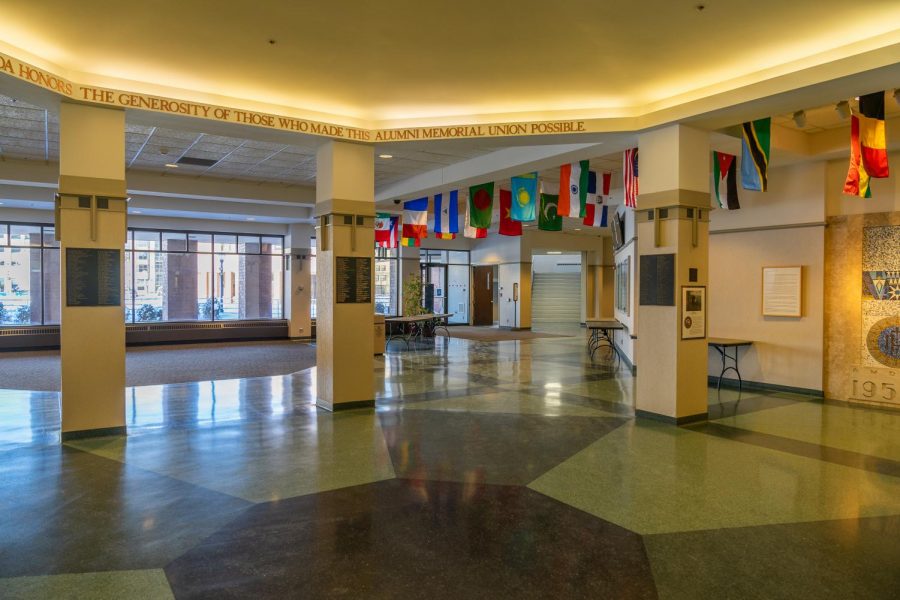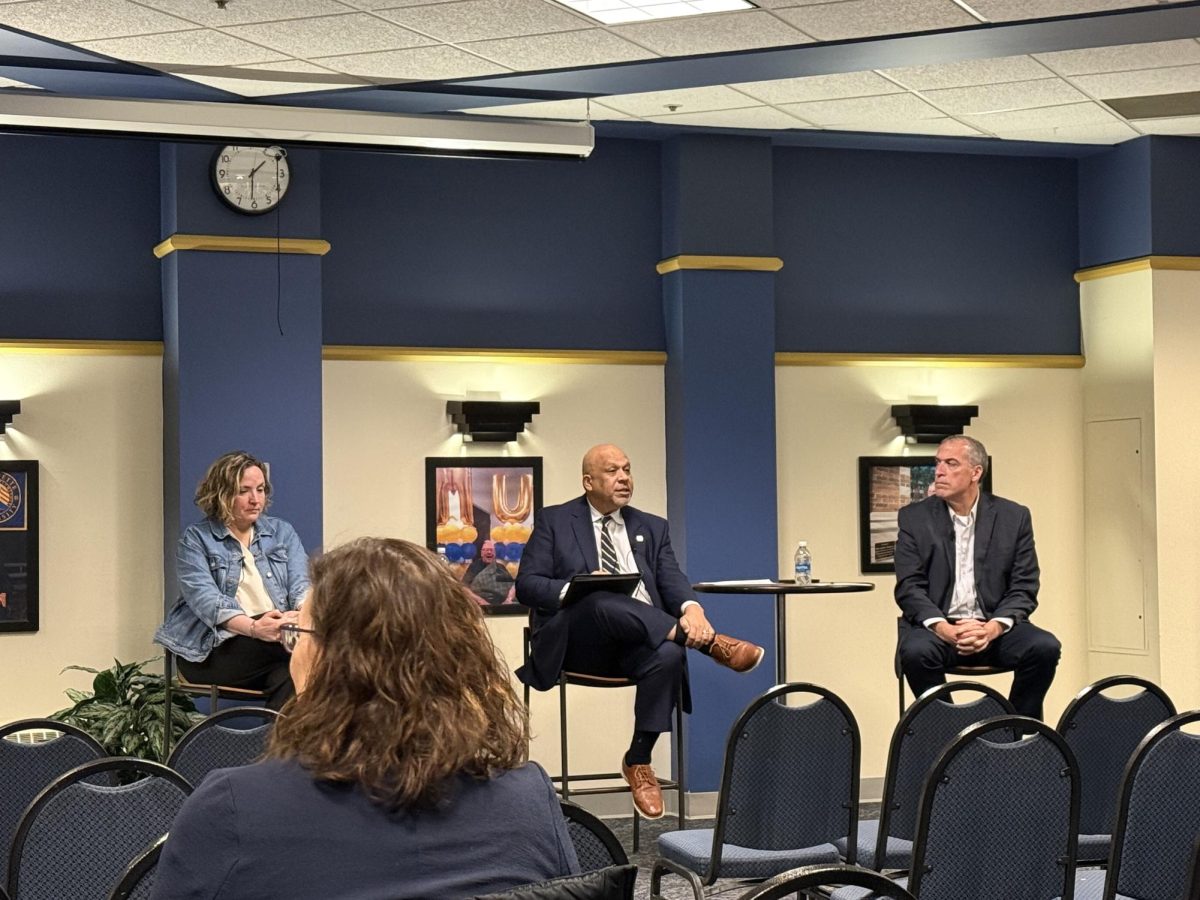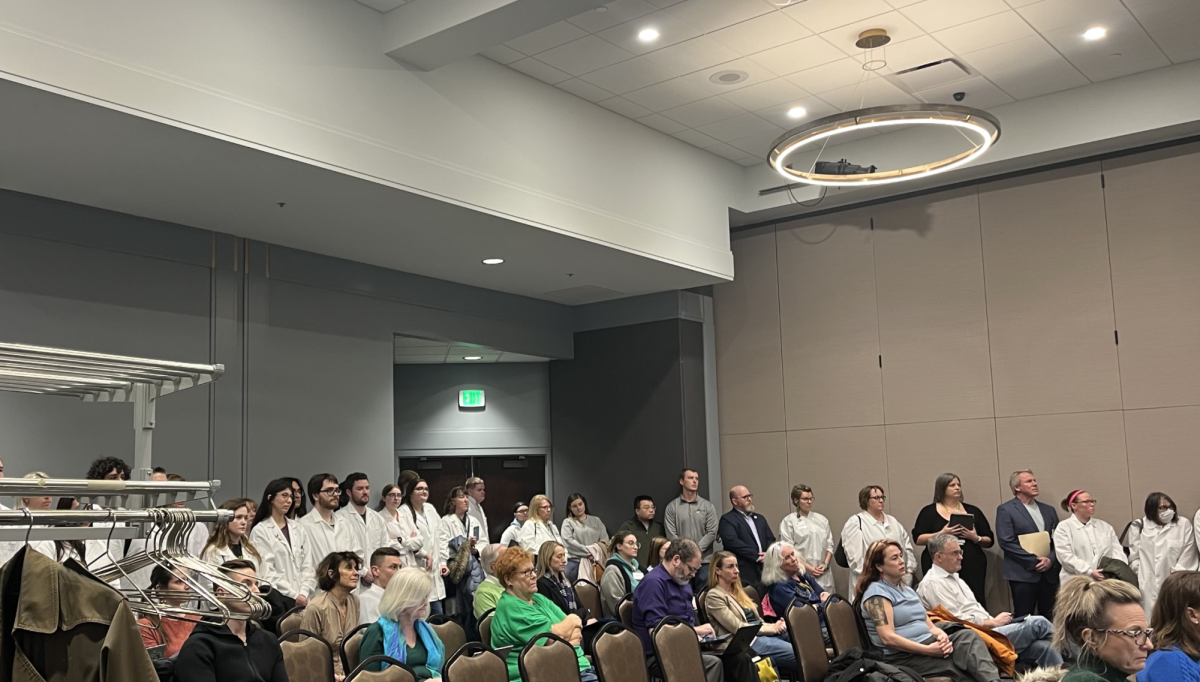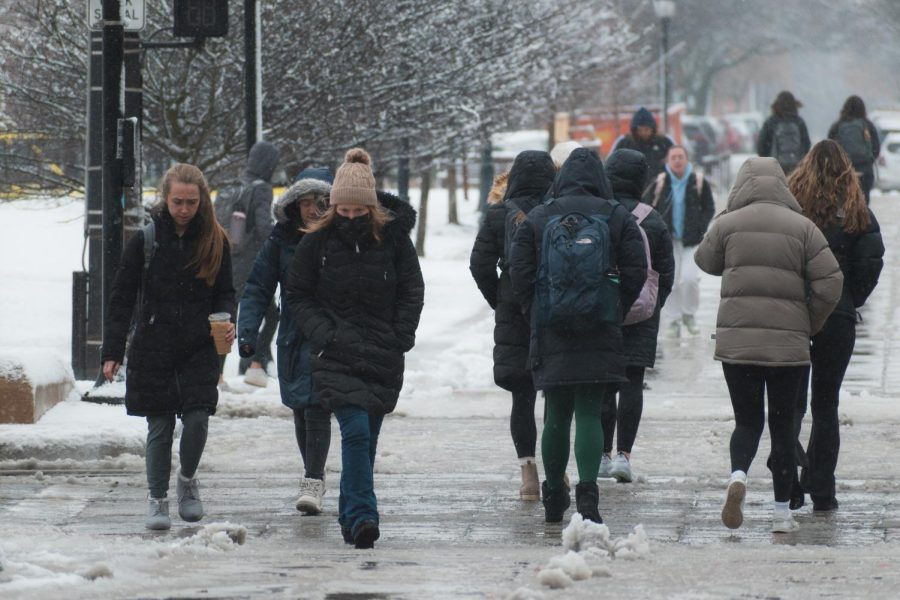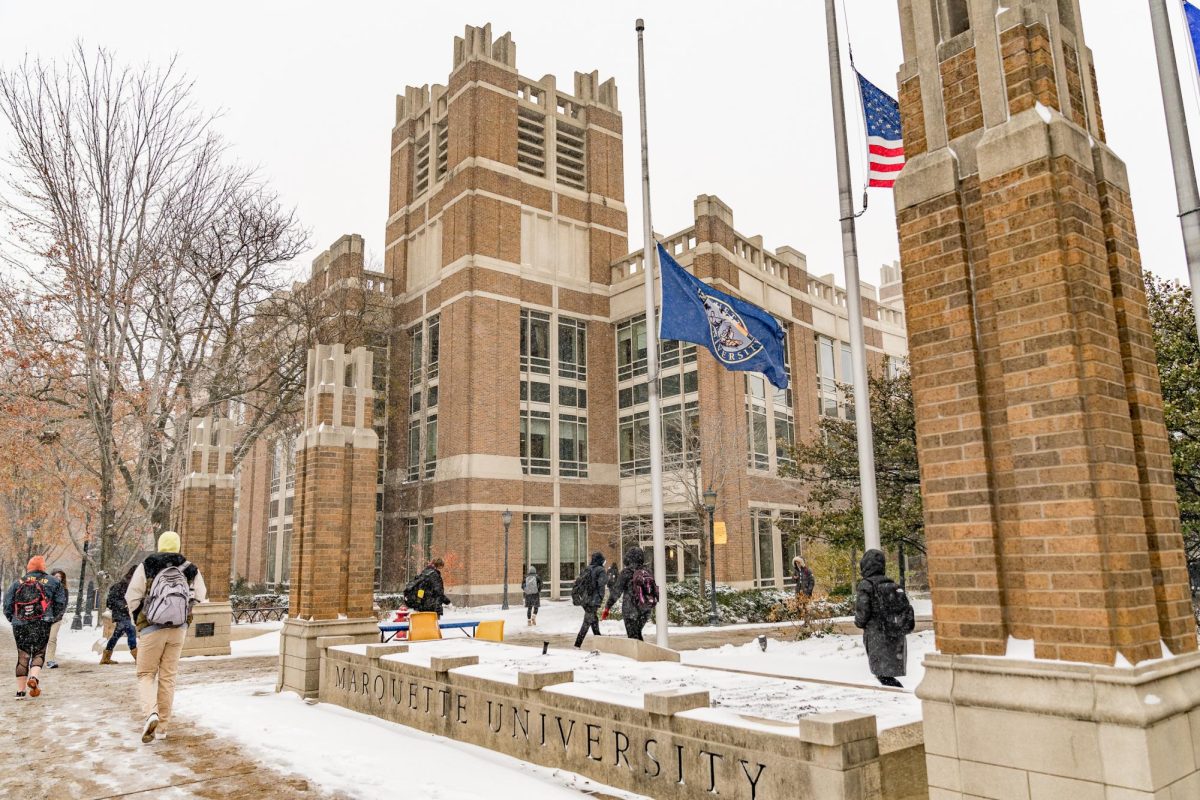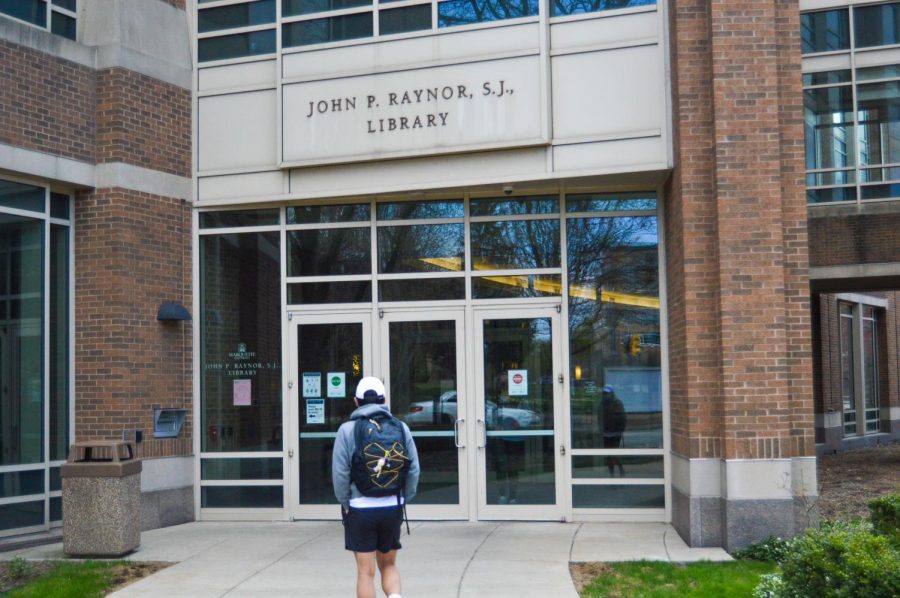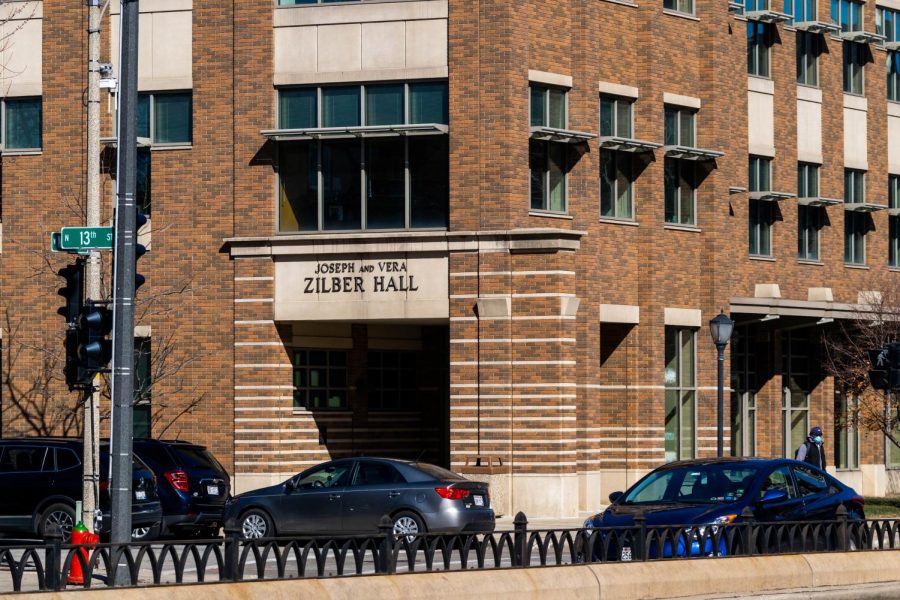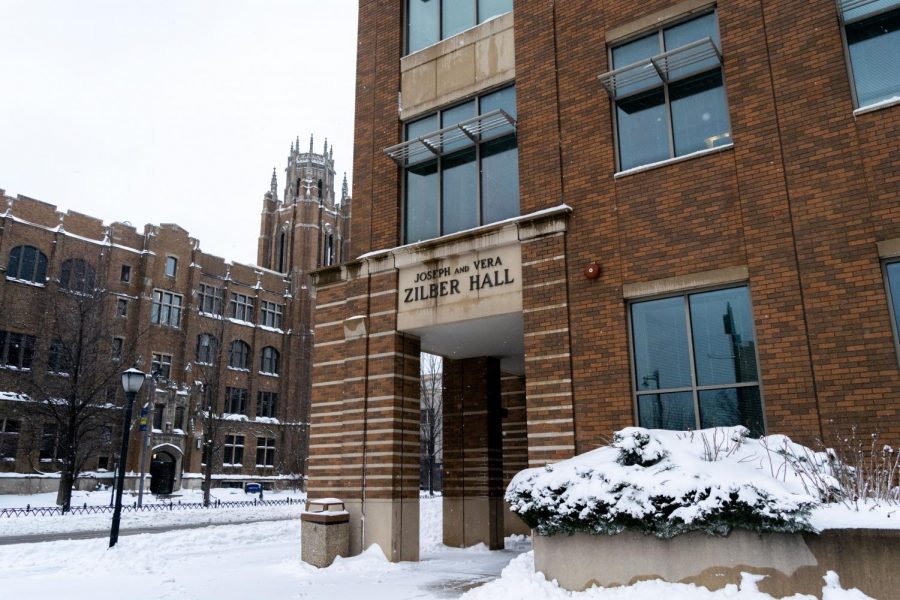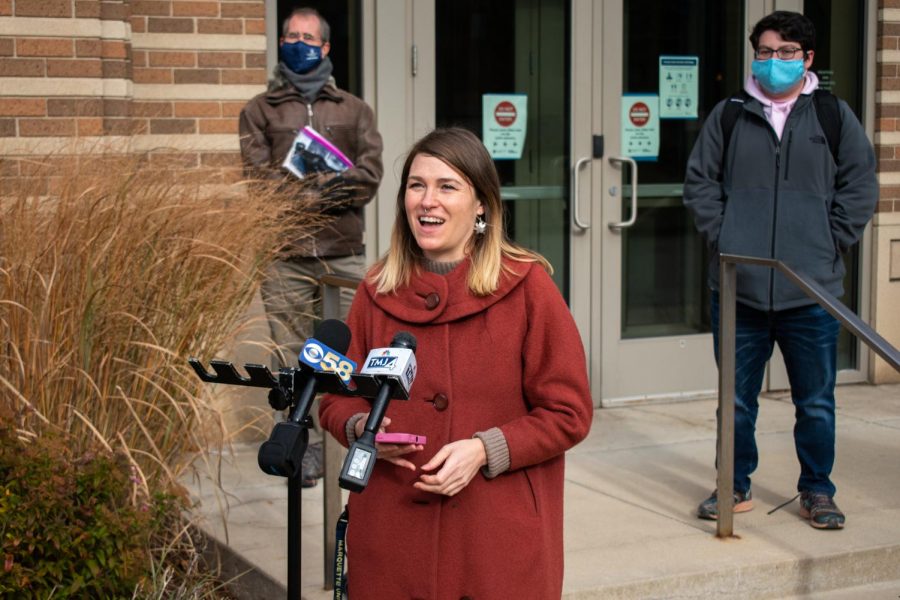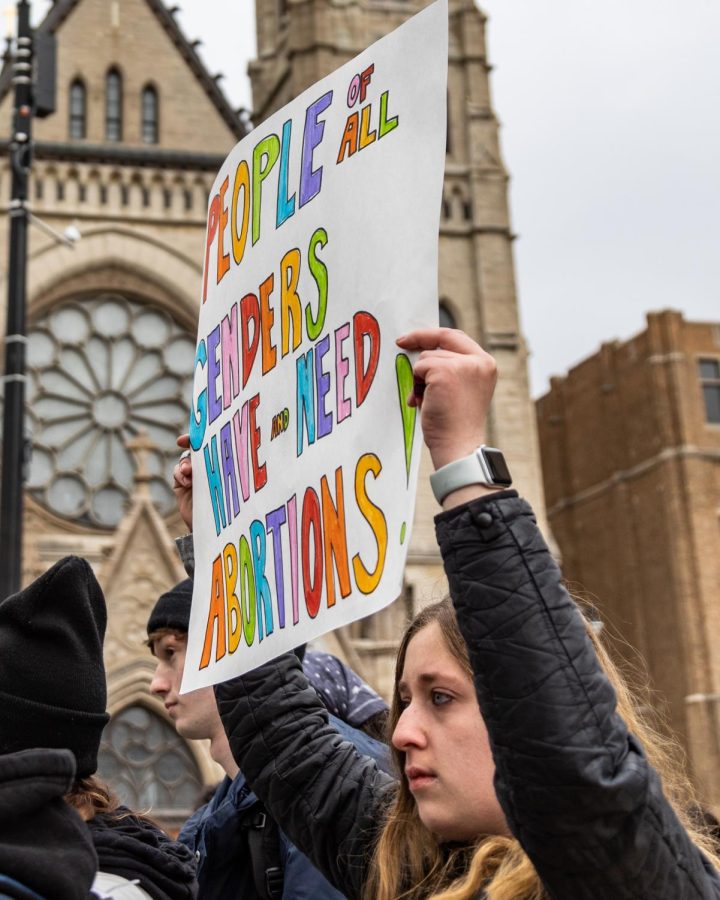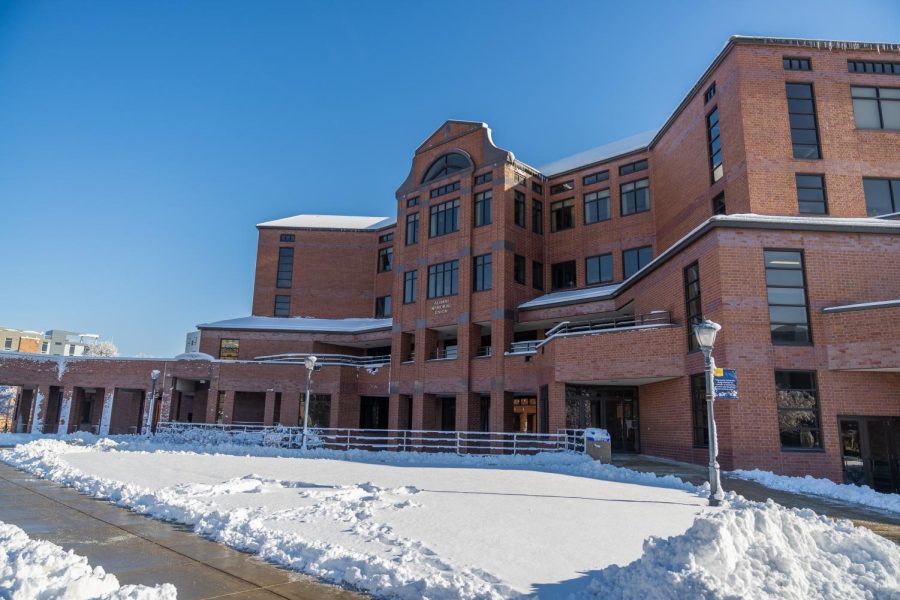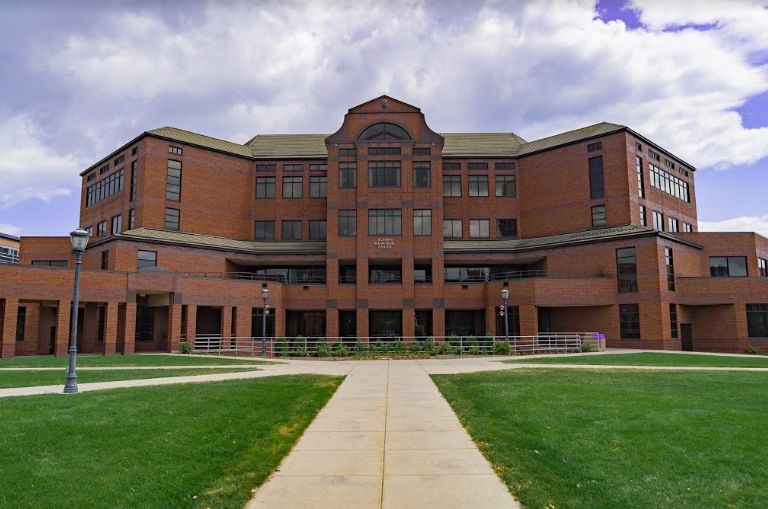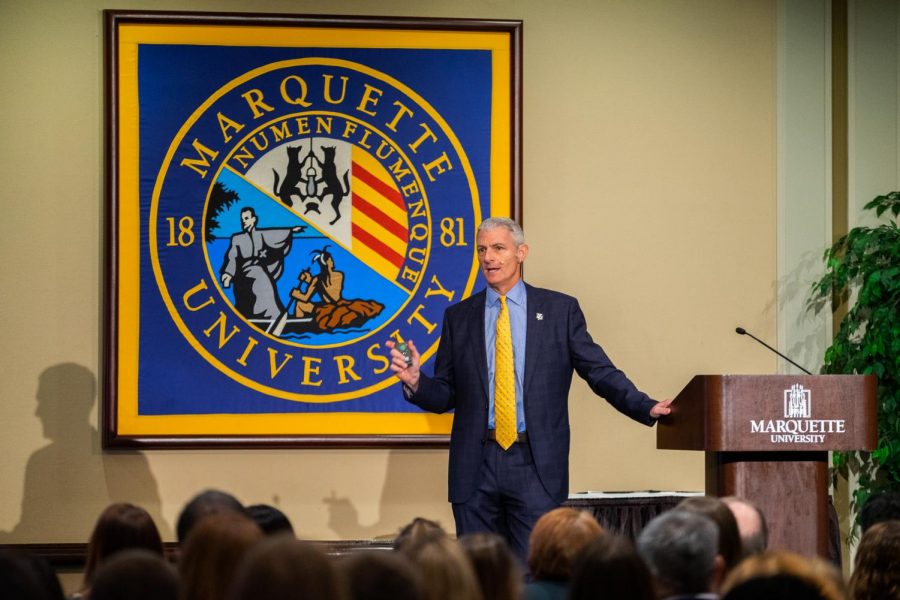After announcing it would reexamine the demonstration policy in early September 2019, the university is expected to release a final updated version this week, Provost Kimo Ah Yun said at a recent University Academic Senate meeting.
The demonstration policy provides guidelines for students, staff and faculty to engage in protests on campus. As a private institution, Marquette University is permitted to limit demonstrations and speech by its community members. It is not a government entity bound to free speech and assembly rights outlined in the First Amendment. Previous versions of the policy included variations of requirements for students, staff and faculty to receive prior permission to protest on campus.
Marquette’s website currently shows a version of the policy from September, said Sumana Chattopadhyay, chair of the University Academic Senate and associate professor of digital media and performing arts.
According to this policy, a designated organizer must meet with the Dean of Students to coordinate planned protests. The event must be scheduled at least two business days after meeting with the Dean of Students. The event is approved if the organizer and dean agree on the “substance” of the proposed event. The policy requires students to receive approval to protest in campus spaces.
The current online policy claims that students, staff and faculty are able to protest in the Alumni Memorial Union or reserved spaces in other university buildings as long as they do not “interfere with the daily business, traffic flow, ingress/egress patterns or scheduled events in either facility.” Students must still meet with the Dean of Students for approval before protesting in the AMU.
University oversight
The current online policy provides university officials with oversight for on-campus protests by providing additional provisions.
The policy discloses what constitutes disruptive and unsafe demonstrations, which are prohibited on campus. These kinds of protests can include those that interfere with rights of other members of the Marquette community, blocks passageways on campus, creates disruptive noise or employs violence, among others. University officials have discretion over how to apply and enforce these expectations.
The document also states organizers should expect university personnel, such as student affairs staff or members of Marquette University Police Department, to be present for protests. These officials are permitted to film, photograph or otherwise record demonstrations. The policy says this “should not be viewed as an effort to deter or otherwise interfere with properly approved demonstrations.”
Organizers are expected to return demonstration areas to their original condition.
History of policy changes
Marquette released its first comprehensive demonstration policy that applied to all faculty, staff and students in May 2019. A demonstration policy for students already existed, but this marked the first time the policy applied to faculty and staff, Chattopadhyay said.
A revised demonstration policy was released Aug. 16, 2019. Chattopadhyay said this update came from discussions held over the summer and involved minor wording changes to provide clarification.
The university then created a policy specific to the Alumni Memorial Union Aug. 20, 2019, which was then updated Aug. 28, 2019.
After this, the university released an additional update to the overall policy Aug. 27.
The various policy changes were made without open communication to the Marquette community. Updates to the policy omitted previous sections or changed wording without explanation.
Marquette community members spoke out in an open letter expressing their dissatisfaction with the policy’s content and approval process. Following the letter, the university said it would reevaluate the policy.
University Academic Senate, with input from Faculty Council, University Staff Senate and Marquette University Student Government, worked to create a revised version of the policy to be released this week. Chattopadhyay added that the Academic Senate considered input from members of the Marquette community who were uninvolved in those entities via email submissions and audience feedback at the senate meetings.
Provost Kimo Ah Yun previously told the Marquette Wire that representatives from the Office of the Provost, the Office of Finance, the Office of the General Counsel and the Department of Human Resources review and approve university policies and procedures. He said he and senior vice president and chief operating officer Joel Pogodzinski determine final approval for policies.
Some feedback in response to the demonstration policy noted that it directly affected faculty and staff, but these community members did not have the opportunity to provide input on its content.
While the policy incorporating faculty and staff was released in May, there was not campus-wide feedback until August. Chattopadhyay and Brittany Pladek, an assistant professor of English, said this was likely due to faculty being off-campus over the summer. She said she she believes many faculty missed the first announcement about the policy.
“I suspect the reason that the policy first got pushback in August 2019 is because May is an extraordinarily busy and exhausting month for faculty and the announcement about the new policy was not advertised in a way intended to draw attention,” Pladek said in an email. “In May, faculty are finishing up our terms and trying to prepare for summer research, which often involves travel.”
A timeline of drafts
After the August policy changes prompted backlash from the Marquette community, the Academic Senate began listening to feedback and creating new drafts of the policy at monthly meetings.
The Academic Senate is a body of representatives including faculty, undergraduate and graduate students representatives and appointed and ex officio deans and vice provosts. It advises top university officials and trustees on decisions regarding academic policies and other issues, according to its website.
At its September 2019 meeting, the University Academic Senate reviewed and discussed a policy drafted Sept. 9. Chattopadhyay said the policy went through another round of edits in October 2019. According to recorded minutes of the Academic Senate’s October meeting, Faculty Council — Academic Senate’s standing committee — provided an update regarding progress on the policy.
Faculty Council reviewed the policy and sent input in November, according to a previous Marquette Wire article. Members of Faculty Council then sent their updates to university offices working on the policy updates, Chattopadhyay said.
The most recent draft was discussed at the Academic Senate meeting in January, when Chattopadhyay verbally went over all changes made from the last draft. At the end, she informed members of the senate that they had one week to offer any final feedback, concerns or suggestions for edits via email. Final input was due Feb. 3.
The various feedback and edits were based on the August version of the policy, Chattopadhyay said.
While the updated policy will be enacted and replace the current policy, Chattopadhyay said she had a conversation with Ah Yun and decided that “if there is more discussion on campus about suggested changes in the future or anything else, we are going to keep the conversation open because it’s like there’s always the possibility of changing things based on feedback.”
Community reactions to policy
Pladek was one of various faculty members who objected to the policy. She said she first learned of the policy in August 2019, either through Marquette Today or at an Academic Senate meeting.
“My initial reaction was surprise and disappointment,” Pladek said in an email. “It seemed to me then, and it still seems to me now, that the updated policy aims to shield Marquette’s upper administration from hearing things about the experiences of students, staff, and faculty on campus that it doesn’t want to hear; in particular, it seems like a direct response to the protests in support of the NTT/grad student union that happened in May 2019.”
Marquette community members held protests in the spring 2019 semester to ask university administrators to acknowledge and respect a fair process for non-tenure-track faculty to form a union. Advocates for unions claim they allow employees more leverage to bargain for better compensation and benefits.
Although a demonstration policy already applied to students in years prior, some students like Catie Petralia, a senior in the College of Arts & Sciences, recently expressed disapproval of the policy. She said she felt “the demonstration policy was blatantly changed to include like faculty and staff after the union demonstrations in the spring, which I was also involved in.”
Petralia said that while she was vocal about the policy in the fall and was part of a protest on campus in September on climate change and the campus demonstration policy, she has not kept up with edits to the policy.
“I’ve become less, kind of, outspoken about the whole demonstration policy thing and less hopeful about trying to change Marquette’s view because at the end of the day, Marquette is a private institution and they’re going to do whatever they want, regardless of what we want,” she said.
Chattopadhyay said some faculty and staff do not want a policy on demonstrations at all. She said she communicated this message to the provost’s office. Pladek is among those who said they support getting rid of the demonstration policy altogether.
Pladek said in an email that among her “major problems with the policy” is that the policy requires that protests occur in the AMU, its adjacent spaces and public property, and that other spaces are off limits unless demonstrators request pre-approval. She said this takes away the “free” aspect of “free speech.”
Though the university previously said protesters do not need permission to demonstrate in the AMU, several attorneys previously told the Marquette Wire that the requirements in the policy equate to needing permission.
Pladek added that there is “no approval process in place to ensure that whomever is deciding whether non-AMU-adjacent protests go forward has any sort of accountability. This risks inequity in which protests are allowed and which aren’t, depending on which topics university administrators feel willing to sanction and which they don’t.”
Under the Academic Senate’s current bylaws, Chattopadhyay said, the Academic Senate does not have a say in University’s Policy and Procedures. This is why the demonstration policy was updated in May and August by top administrators without initial faculty and staff input.
After some faculty and staff expressed dissatisfaction with being left out of demonstration policy creation process, Chattopadhyay said the senate voted this past year to create a senate standing committee that acts as a policy review committee.
“Once that is set up, then every policy that is part of the UPPs will have to go through that senate body. … The senate won’t vote on it, but at least they will be informed so that if they have any feedback, they have a chance to weigh in before the policy is sort of created or updated,” Chattopadhyay said.
The Faculty Council is currently writing the language for the standing committee that will review university policies. It will then become a formal part of the senate. It is not yet known when this will occur.
This story was written by Kelli Arseneau. She can be reached at kelli.arseneau@marquette.edu.

